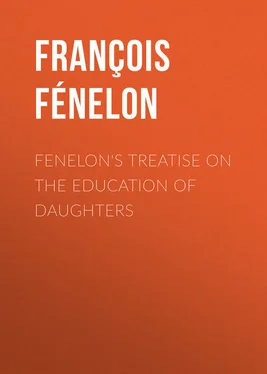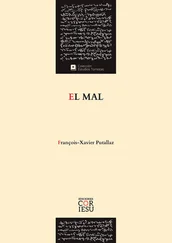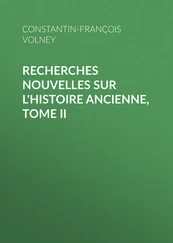François Fénelon - Fenelon's Treatise on the Education of Daughters
Здесь есть возможность читать онлайн «François Fénelon - Fenelon's Treatise on the Education of Daughters» — ознакомительный отрывок электронной книги совершенно бесплатно, а после прочтения отрывка купить полную версию. В некоторых случаях можно слушать аудио, скачать через торрент в формате fb2 и присутствует краткое содержание. Издательство: Иностранный паблик, Жанр: foreign_antique, foreign_prose, на английском языке. Описание произведения, (предисловие) а так же отзывы посетителей доступны на портале библиотеки ЛибКат.
- Название:Fenelon's Treatise on the Education of Daughters
- Автор:
- Издательство:Иностранный паблик
- Жанр:
- Год:неизвестен
- ISBN:нет данных
- Рейтинг книги:4 / 5. Голосов: 1
-
Избранное:Добавить в избранное
- Отзывы:
-
Ваша оценка:
- 80
- 1
- 2
- 3
- 4
- 5
Fenelon's Treatise on the Education of Daughters: краткое содержание, описание и аннотация
Предлагаем к чтению аннотацию, описание, краткое содержание или предисловие (зависит от того, что написал сам автор книги «Fenelon's Treatise on the Education of Daughters»). Если вы не нашли необходимую информацию о книге — напишите в комментариях, мы постараемся отыскать её.
Fenelon's Treatise on the Education of Daughters — читать онлайн ознакомительный отрывок
Ниже представлен текст книги, разбитый по страницам. Система сохранения места последней прочитанной страницы, позволяет с удобством читать онлайн бесплатно книгу «Fenelon's Treatise on the Education of Daughters», без необходимости каждый раз заново искать на чём Вы остановились. Поставьте закладку, и сможете в любой момент перейти на страницу, на которой закончили чтение.
Интервал:
Закладка:
What intrigues does history present to us – what subversion of laws and manners – what bloody wars – what innovations in religion – what revolutions in states – all arising from the irregularities of women? Ought not these considerations to impress us with the importance of female education? Let us, therefore, discuss the various means of accomplishing so desirable an object.
CHAPTER II
Ignorance is one of the causes of the ennui and discontent of young persons, and of the absence of all rational amusement. When a child has arrived at a certain age without having applied to solid pursuits, she can have neither taste nor relish for them. Every thing which is serious assumes to her mind a sorrowful appearance; and that which requires a continued attention, wearies and disgusts her. The natural inclination to pleasure, which is strong in youth – the example of young people of the same age, plunged in dissipation – every thing, in short, serves to excite a dread of an orderly and industrious life. In this early age, she wants both experience and authority to take a decided part in the management of household affairs; she is even ignorant of the important consequences resulting from it, unless her mother has previously instructed her in some of its departments. If she be born to affluence, she is not necessitated to undergo manual toil: she may probably work an hour or two a day, because she hears it said, without knowing why, that "it is proper for women to work" – but this pithy proverb will only produce the semblance, without the substance, of real useful application.
In such a situation what is she to do? The society of a mother, who narrowly watches, scolds, and thinks she is performing her duty in not overlooking the least fault – who is never satisfied, but always trying the temper, and appears herself immersed in domestic cares; all this disgusts and torments her. She is, moreover, surrounded with flattering servants, who, seeking to insinuate themselves, by base and dangerous compliances, gratify all her fancies, and direct her conversation to every topic but that of goodness and virtue. To her, piety appears an irksome task – a foe to every rational amusement. What, then, are her occupations? None that are useful. Hence arises a habit of indolence, which at length becomes incurable.
Meantime what is to fill this vacuity? Nothing but the most frivolous and contemptible pursuits. In such a state of lassitude, a young woman abandons herself to pure idleness; and idleness, which may be termed a languor of the soul, is an inexhaustible source of weariness and discontent. She sleeps one-third more than is necessary to preserve her health: this protracted slumber serves only to enervate and render her more delicate; more exposed to the turbulency of passion; whereas moderate sleep, accompanied with regular exercise, produces that cheerfulness, vigour, and elasticity of spirits, which form, perhaps, the true criterion of bodily and mental perfection.
This weariness and idleness, united with ignorance, beget a pernicious eagerness for public diversions; hence arises a spirit of curiosity, as indiscreet as it is insatiable.
Those who are instructed and busied in serious employments, have, in general, but a moderate curiosity. What they know gives them an indifference for many things of which they are ignorant; and convinces them of the inutility and absurdity of those things, with which narrow minds, that know nothing, and have nothing to exercise themselves upon, are extremely desirous of becoming acquainted.
On the contrary, young women, without instruction and application, have always a roving imagination. In want of substantial employment, their curiosity hurries them on to vain and dangerous pursuits. Those who have somewhat more vivacity, pique themselves on a superior knowledge, and read, with avidity, every book which flatters their vanity: they become enamoured of novels, plays, and "Tales of Wonder," in which love and licentiousness predominate: they fill their minds with visionary notions, by accustoming themselves to the splendid sentiments of heroes of romance, and hence are rendered unfit for the common intercourse of society; for all these fine airy sentiments, these generous passions, these adventures, which the authors of romance have invented for mere amusement, have no connexion with the real motives which agitate mankind, and direct the affairs of the world; nor with those disappointments which usually accompany us in almost every thing we undertake.
A poor girl, full of the tender and the marvellous, which have delighted her in her reading, is astonished not to find in the world real personages, resembling the heroes she has read of – fain would she live like those imaginary princesses, whom fiction has described as always charming, always adored, and always beyond the reach of want. What disgust must she feel on descending from such a state of heroism, to the lowest offices of housewifery!
Some there are who push their curiosity still further, and without the least qualifications, presume to decide upon theological points. – But those who have not sufficient grasp of intellect for these curiosities, have other pursuits, better proportioned to their talents: they are extremely desirous of knowing what is said, and going on in the world – a song – news – an intrigue – to receive letters, and to read those that other people receive; these things delight prodigiously; they wish every thing to be told them, and to tell every thing in turn: they are vain, and vanity is a sure incentive to talk. They become giddy, and volatility prevents those reflections from rising which would shew them the value of silence.
CHAPTER III
To remedy the evils just complained of, it is of material consequence to commence a system of education from Infancy : this tender period, which is too often intrusted to imprudent and irregular women, is, in truth, the most susceptible of the strongest impressions, and consequently has a great influence on the future regulation of life.
As soon as children can lisp, they may be prepared for instruction: this may be thought paradoxical – but only consider what a child does before it can talk. It is learning a language which it will, by and by, speak with more accuracy, than the learned can speak the dead languages, although studied at a mature period of life. But what is the learning a language? It does not consist solely in treasuring in the memory a great number of words – but in comprehending, says St. Austin, the meaning of each particular word: the child, amidst its cries and amusements, knows for what object each word is designed: this is obtained sometimes by observing the natural motions of bodies which touch, or shew, the objects of which one is speaking – sometimes by being struck with the frequent repetition of the same word to signify the same thing. It cannot be denied but that the brain of children is admirably calculated, from its temperament, to receive impressions from all these images; but what strength of mental attention is requisite to distinguish them, and to unite each to its proper object?
Consider too, how children, even at such a tender age, attach themselves to those who flatter, and avoid those who restrain, them: how well they know to obtain their object by a tear, or silent submission: how much artifice and jealousy they already possess! "I have seen," exclaims St. Austin, "a jealous child: it could not speak; but its face was pale, and the eyes were irritated against an infant that suckled with it."
From this it may be inferred, that infants know more at such an early period than is usually imagined: thus, by soft words and appropriate gestures, you may incline them towards honest and virtuous connexions, rather than introduce them to those which it would be dangerous for them to caress. – Thus, again, you may, by appropriate looks and tone of voice, represent to them, with horror, those whom they have seen exasperated with anger, or any other furious passion; and, on the other hand, by a correspondent serenity of manner, depicture to them those who are amiable and wise.
Читать дальшеИнтервал:
Закладка:
Похожие книги на «Fenelon's Treatise on the Education of Daughters»
Представляем Вашему вниманию похожие книги на «Fenelon's Treatise on the Education of Daughters» списком для выбора. Мы отобрали схожую по названию и смыслу литературу в надежде предоставить читателям больше вариантов отыскать новые, интересные, ещё непрочитанные произведения.
Обсуждение, отзывы о книге «Fenelon's Treatise on the Education of Daughters» и просто собственные мнения читателей. Оставьте ваши комментарии, напишите, что Вы думаете о произведении, его смысле или главных героях. Укажите что конкретно понравилось, а что нет, и почему Вы так считаете.












